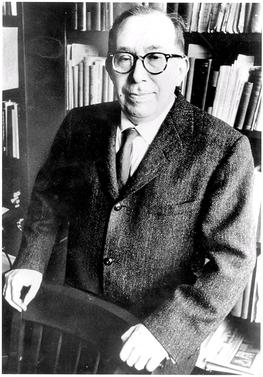"The
truth about Leo Strauss" is a book defending the legacy of Leo Strauss,
who hardly needs a closer introduction. In the case you really don't know:
Strauss was a conservative political philosopher who died in 1973. During the
Iraqi war, American liberal media claimed that many of his former students had
become influential in Washington, and that this was somehow connected to the
aggressive foreign policy and blatant lying of the Bush administration. The
political ideas of Leo Strauss therefore became controversial. One of the most
well known critics of Strauss and his followers (known as Straussians) is
Canadian professor Shadia Drury, who has written three books on the subject.
The authors of "The truth about Leo Strauss", Catherine Zuckert and Michael Zuckert, are former students of Strauss. The main aim of their book is to counter Drury's arguments. In this sense, the book is polemical. However, many of the chapters are quite "timeless", and the book could therefore be read as a general introduction to the often difficult ideas of Strauss. There is also an extensive section on the Straussians, dealing with Harry Jaffa and Allan Bloom in particular. After the death of Strauss, his followers split in two main camps, known as West Coast and East Coast Straussians. The authors, perhaps tongue in cheek, call themselves Midwest Straussians!
I found the book interesting, but also surprising. The authors are more independent-minded than Jaffa, whose descriptions of Strauss sound like "hallelujah". The Zuckerts deal forthrightly with tensions in Strauss' arguments, especially the tension between his anti-modernism, his belief that America is modern, and his belief that America should nevertheless be supported against fascism and Communism. They also point out that this tension has been one of the main sources of dissension within the Straussian camp. Jaffa, for instance, attempt to solve the tension between anti-modernism and American patriotism by claiming that America isn't really modern. The Zuckerts themselves tend towards claiming that modernity isn't necessarily bad. Another good thing with the book is that it's written in a relatively accessible style, in contrast to Bloom's "The Closing of the American mind", not to mention Strauss' own works.
What I found most surprising about the book, is that it actually confirms many of the accusations against Strauss! That might not have been the authors' intention, but that's nevertheless my conclusion after reading it. Of course, Catherine and Michael Zuckert deny that Strauss was a teacher of immorality, that he wanted the philosophers to rule, and so on. They also deny that he had a hidden, esoteric message which said the very opposite of his public teaching.
And yet...
And yet, the impression I got after reading "The truth about Leo Strauss" is that Strauss was elitist, anti-modernist, anti-democratic and defended the practice of "noble" lies. Moreover, his attempt to refute what we today call postmodernism was in many ways actually an adaptation to the very same postmodernism!
The picture of Strauss emerging from this book is roughly the following. Strauss wanted to refute Nietzsche, who held that the philosophical project had failed, since philosophy had realized that knowledge was impossible. Reason had defeated itself. Strauss response was to *affirm* that complete knowledge was indeed impossible. He even affirmed that reason was powerless to defeat revelation. However, Strauss denied that this affected philosophy. The secret message of many ancient philosophers, including Plato, was that complete knowledge was indeed impossible. However, the philosophical life was worthwhile anyway. The quest for knowledge, even if unending or ultimately futile in the abstract, was nevertheless the highest form of human life. Strauss was also sceptical to ideas about universal truths, preferring instead a situation in which each culture was particularist. Somehow, it feels as if Strauss "saved" philosophy from Nietzsche (and his other main opponent, Heidegger) by amputating large parts of it! He never really silenced Nietzsche and Heidegger. Instead, he adopted a position that could be described as agnostic.
Strauss further believed that this agnosticism was dangerous. A political society cannot be built on the basis of such agnosticism. Therefore, the philosophers must hide their true insights from the unphilosophical. This is what Plato did. The public message of Plato wasn't agnostic. It included a belief in eternal Ideas and the immortality of the soul. In reality, Plato didn't believe in this. His esotericism served two purposes. First, to protect philosophy from persecution. Second, to protect society from harm. Philosophers have the right to tell "noble" lies to the common people, in order to uphold social and political stability. This is for the common good, and hence not immoral. Further, Strauss believed that philosophers, while not becoming rulers themselves, should nevertheless educate future rulers.
But isn't this simply a more benign interpretation of the charges Drury makes against Strauss? To Drury, Strauss is a nihilist, not simply an agnostic. Her Strauss is immoral, because of the "noble" lies. Her Strauss also wants political power - and the Zuckerts admit that Strauss at least wanted to educate rulers. Perhaps Drury's Strauss is a caricature. Yet, it's hardly unreasonable to claim that the consequences of Strauss' ideas might indeed be nihilism, cynicism and immorality - plus the protective dissimulation of it. Judging by the antics of at least the East Coast Straussians, this is exactly what has happened.
Somehow, it feels that Catherine Zuckert and Michael Zuckert, on behalf of Leo Strauss, are pleading guilty as charged.
Esoterically, of course...

No comments:
Post a Comment